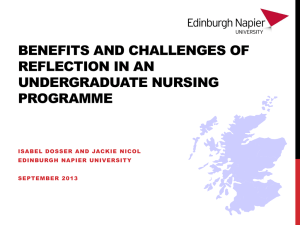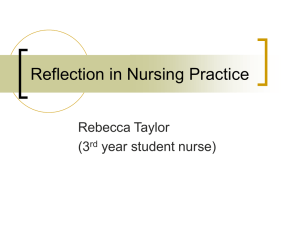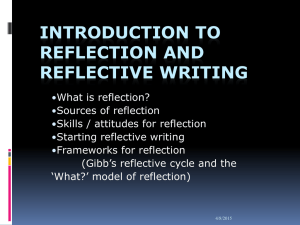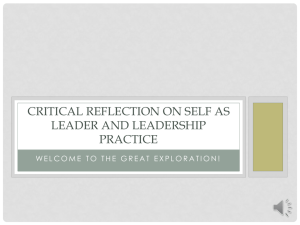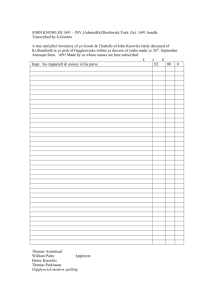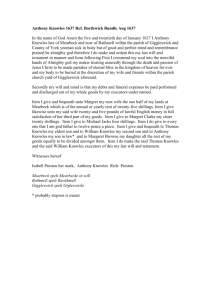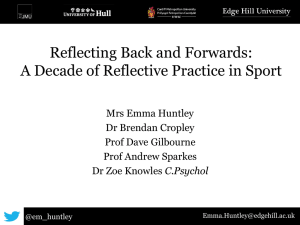Developing Applied Sport and Exercise Psychology through
advertisement
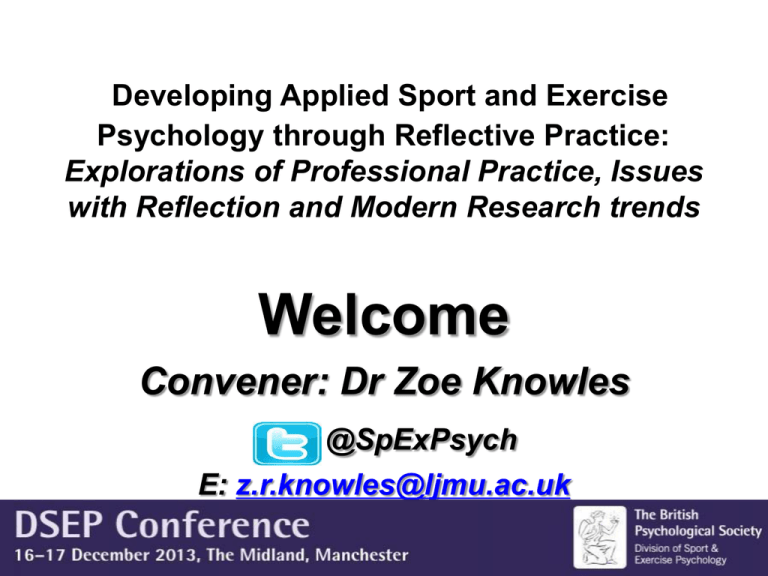
Developing Applied Sport and Exercise Psychology through Reflective Practice: Explorations of Professional Practice, Issues with Reflection and Modern Research trends Welcome Convener: Dr Zoe Knowles @SpExPsych E: z.r.knowles@ljmu.ac.uk The programme and team 9.15: Introduction: Dr Zoe Knowles (LJMU) 9.25: Reflecting back and forwards: The ebb and flow of reflective practice research in sport E. Huntley, Edge Hill University; D. Gilbourne, University of Hull; A. Sparkes, Leeds Metropolitan University; B. Cropley, Cardiff Metropolitan University; Z. Knowles, LJMU 9.40 The role of reflective practice in delivering psychological support to a professional sporting organisation S. Mellalieu, Swansea University 9.55 The utility of reflective practice during the provision of sport psychology support T. Devonport, A. Lane; University of Wolverhampton 10.10 Emerging from the swampy lowlands: Critical issues in the theory and practice of reflection B. Cropley, Cardiff Metropolitan University; G. Picknell, UAE Armed Force; J. Peel, Cardiff Metropolitan University The aim • We hope the symposium (as a collective of critical thinking) will challenge, provoke, disturb and excite those who practice sport and exercise psychology. • We hope today will encourage reflection and open a critical space through which delegates may question their own approaches and maybe re-evaluate their own personal development needs. The journey • We have faced challenges and been required, frequently, to defend our ideas at conferences, through journal reviewer feedback or via personal communications. • In the spirit of critical reflection these interjections and questions have been/continue to be welcomed today. • In our collective view facing critique, even scepticism, has forced us to think through our ideas carefully, and we appreciate the need to always be under scrutiny from colleagues and practitioners. The topic: ‘why, what, how’ • Making sense of our knowledge-in-action through reflective practice allows practitioners to make more informed decisions in practice and about practice, and in doing so helps them to better understand and cope with the complexity imposed by the context of practice in sport and exercise (Cropley & Hanton, 2011). The topic: ‘why, what, how • A purposeful and complex process that facilitates the examination of experience by questioning the whole self and our agency within the context of practice. This examination transforms experience into learning, which helps us to access, make sense of and develop our knowledge-in-action in order to better understand and/or improve practice and the situation in which it occurs. Knowles, Gilbourne, Cropley & Dugdill (2014) • Becoming a reflective practitioner is more than a collection of techniques, and instead involves an all-encompassing attitude to practice that requires the practitioner to commit to professional and personal development. Anderson et al (2004). The book • First text on reflective practice in the sport and exercise sciences • Jan 2014 http://www.routledge.com/books/details/9780415814935/ The self • Children have the capability to move beyond description of experiences to that of reflection. • By engaging in reflection children can become active agents who express themselves and offer valid views to influence decisions and the world around them. • For children, reflection needs to be facilitated by adults who role-model this process and engage children in structured, developmentally appropriate techniques that are reflective in origin but creative by design.

